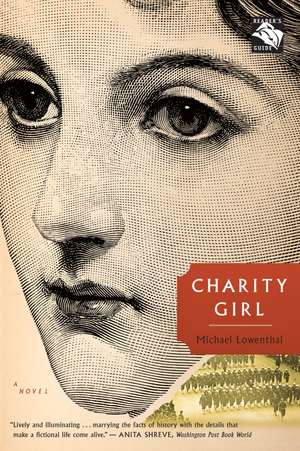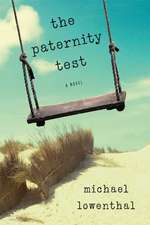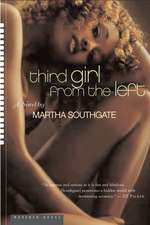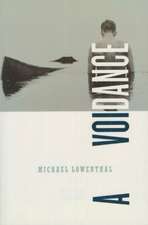Charity Girl
Autor Michael Lowenthalen Limba Engleză Paperback – 7 ian 2008
Charity Girl is based on a little-known chapter in American history that saw fifteen thousand women across the nation incarcerated. Like When the Emperor Was Divine, Lowenthal’s poignant, provocative novel will leave readers moved - and astonished by the shameful facts that inspired it.
Preț: 105.89 lei
Nou
20.27€ • 22.02$ • 17.04£
Carte disponibilă
Livrare economică 31 martie-14 aprilie
Specificații
ISBN-10: 0618919783
Pagini: 336
Dimensiuni: 140 x 210 x 20 mm
Greutate: 0.33 kg
Editura: HarperCollins Publishers
Colecția HarperPerennial
Locul publicării:United States
Recenzii
"A deeply affecting and important novel. . . . Michael Lowenthal at a stroke establishes himself as a significant voice in American fiction." --Jay Parini
"Lowenthal…has accomplished the difficult feat of marrying the facts of history with the details that make a fictional life come alive. That few readers of Lowenthal’s deserving novel will ever have heard of the detention of ‘charity girls’ is astonishing. That Lowenthal has made us aware of them is nothing short of a gift." The Washington Post
"Charity Girl" tells a deeply disturbing story with compassion and sly cleverness.
Boston Globe
Lowenthal deftly personalizes a tragic story... Rich in period detail, swift-paced prose and deserved political outrage.
Kirkus Reviews, Starred
Lowenthal's narrative style is perfect for a heroine who suffers but remains a survivor, striking just the right mix of dark and light, worldly and innocent.
The New York Times Book Review —
Notă biografică
MICHAEL LOWENTHAL is the author of the acclaimed novels Charity Girl, Avoidance, and The Same Embrace. He has written for the New York Times Magazine, the New York Times Book Review, the Washington Post Book World, the Boston Globe, the San Francisco Bay Guardian, and many other publications. He teaches writing at Boston College and Lesely University. Charity Girl was inspired by a line in Susan Sontag's AIDS and Its Metaphors, in which she likens the incarceration of American women during World War I to the internment of Americans of Japanese ancestry during World War II. Lowenthal says, ?The latter historical episode I had, of course, heard about, but not the first . . . I immediately had two thoughts: (1) how awful, and (2) what a great basis for a novel.?










